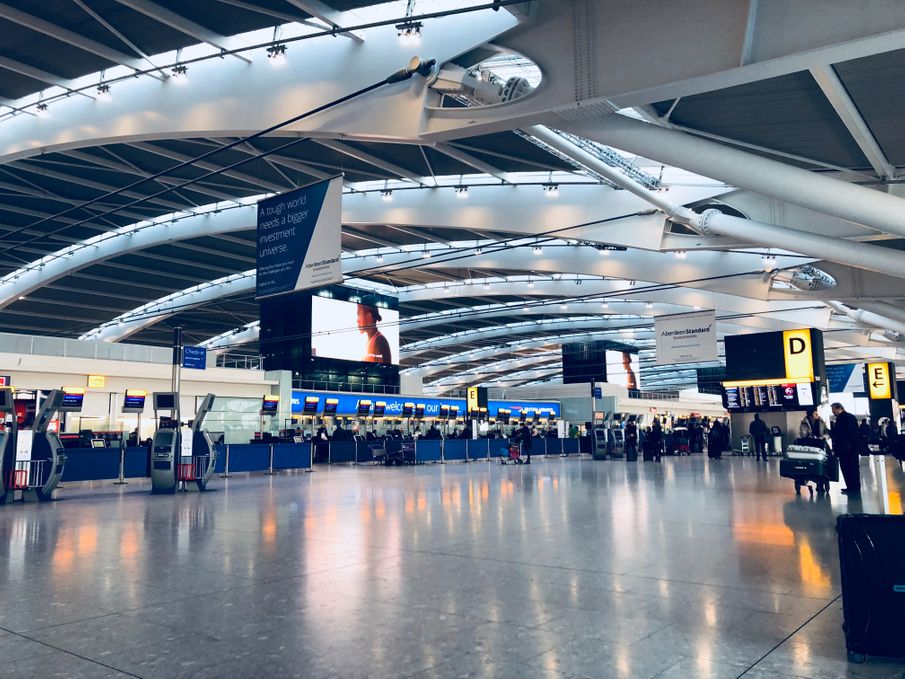Police across England and Wales are launching the first-ever national crackdown on forced marriages at airports across the country
Together with the support of charities, social and health services, police officers from England and Wales will be joining together with the Border Force for Operation Limelight.
Set to run between 15-19 July, Operation Limelight will focus on flights between the UK and destinations where there is a known high level of forced marriage. Airport and airline staff will receive further education around spotting warning signs, in the hopes that this will increase their confidence in reporting suspicious activity.
Police are launching the first ever national crackdown on forced marriage at a number of airports as the school holidays get underway – Operation Limelight. https://t.co/t94ia4Qvf1 pic.twitter.com/5FaPBZscko
— NPCC (@PoliceChiefs) July 15, 2019
Intelligence will also be used to identify and find victims about to leave the UK, as well as those who have just arrived back in the country. Commander Ivan Balhatchet, the National Police Chiefs’ Council’s lead for forced marriage, said:
“Forced marriage is a violation of human rights. This week officers will be at airports using intelligence to intervene to prevent victims being taken abroad for a forced marriage. We’ll also be equipping airport staff to spot signs and encouraging them to report suspicions to us.
“The isolation, threats and violence that victims experience means that this is not something that can be tackled by police alone. That’s why our close partnership with public and third sector organisations during this operation will be key.”
Earlier this year, the Home Office’s Forced Marriage Unit reported it had supported 1,764 cases of suspected forced marriage over the course of 2018. One-third of cases (574) handled involved young people under the age of 18, with authorities handling cases coming from over 70 countries.
The highest rates of forced marriage travel in 2018 from the UK involved travel to Pakistan (769 cases), Bangladesh (157) and India (110). Numbers are thought to be higher, as forced marriages are often hidden crimes.
“People like myself are living proof that there is an alternative to #ForcedMarriage."#HonourBasedAbuse survivor Rashid Begum has worked hard to tackle gender-based violence, ensure protection for others at risk, and help give them a voice.#DayOfMemory pic.twitter.com/b50iAxilx0
— Home Office (@ukhomeoffice) July 14, 2019
By definition, a forced marriage is a a marriage where one or both parties do not or cannot agree to the union. Often threats, coercion, or violence are involved. It is important to note these differer from arranged marriages, where both individuals are able to refuse to marry if they wish.
Forced marriage has been a specific criminal offence in the UK since 2014, as it was outlined in the Anti-social Behaviour, Crime and Policing Act 2014. Often other criminal offences also apply, such as violence and coercive control.
Commander Balhatchet explained:
“Police will investigate every case fully and take all available steps to detect and prosecute those involved in this heinous crime. Forcing someone to marry is punishable by up to seven years in prison.
“I urge anyone with concerns around forced marriage, or any other harmful practices affecting our children or vulnerable adults to come forward and tell police. We will treat each individual case sensitively and confidentially.”
Individuals of all ages and genders may face a forced marriage. If you are experiencing threats of or actual physical or sexual violence, emotional or psychological abuse, or financial abuse, help and support is available.
If you are concerned you or someone you care about may be facing a forced marriage, the Freedom Charity offer advice on where you can find help, signs to look out for, and how you can support others. If you are concerned about a friend or loved one, you can remain anonymous whilst reporting your concerns.
In a case of emergencies, call 999. Trained professionals will be able to provide free advice, help you to find a safe place to stay, and stop a UK visa if you have been forced to sponsor someone else. For non-emergencies, contact the Forced Marriage Unit (FMU) to stop a forced marriage or for help leaving a marriage you have been forced into. The FMU can be contacted at: fmu@fco.gov.uk or by phone Monday to Friday, 9am to 5pm on 020 7008 0151 from the UK or +44 (0)20 7008 0151 from overseas.
If you are already abroad and fear you may be forced to marry against your will, contact your nearest British embassy.
It is an offence to take someone overseas to force them to get married (regardless of if the marriage takes place). You can apply for a forced marriage protection order if you or someone else is being threatened with forced marriage, or if you are in a coerced marriage.
For more information, check the Force Marriage Survivors Handbook, visit the Freedom Charity or Childline.
Credit: photo by Belinda Fewings on Unsplash


Comments